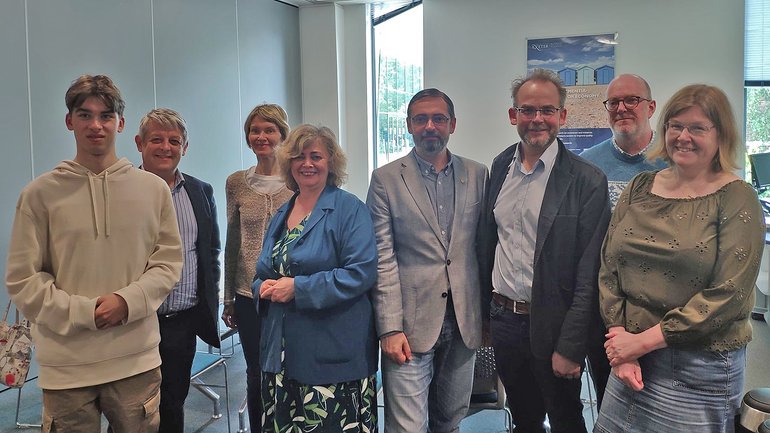Ukrainian religious scholars provide advice to British experts collecting evidence of Russian crimes for trial in The Hague

This was reported by Ukrainian scientist Dr Serhiy Shumylo on his Facebook page.
British experts in medical forensics (they asked not to be named), who work with the UK Ministries of Defence and Home Affairs, are currently training Ukrainian police investigators and forensic scientists in the methods of forensic examination of war crimes and identification of war victims. During the meeting, they introduced Ukrainian religious scholars to the formulation of a strategy and the selection of evidence in the field. Particular attention was paid to researching the torture and murder of Ukrainian servicemen by Russian troops, followed by what appeared to be relatively formalised Orthodox burials.
The second aspect relates to the damage to religious and cultural sites during the war and the complex relationship between the Russian and other Orthodox churches in Ukraine.
On the Ukrainian side, the discussion was attended by Dr Serhii Shumylo and Dr Daria Morozova, researchers at the University of Exeter. The meeting was also attended by professors from the University of Exeter's Department of Religion and Theology, Brandon Gallaher and Emma Loosley, and Nata Bukia-Peters, who has worked as a translator for the International Criminal Court in The Hague on war crimes cases, including documenting human rights violations in South Ossetia.
As part of the discussion, Ukrainian religious experts provided consultations and answered questions about the specifics of the religious situation in different regions of Ukraine, in particular in the context of Russia's war against Ukraine, the peculiarities of funeral rituals, the peculiarities of the attitude of Ukrainian religious communities to Russia's war against Ukraine, the facts of collaboration among the Orthodox clergy, and much more.
Serhii Shumylo also provided British forensic scientists with photographs and videos of the crimes committed by the Russian occupiers in his native Chernihiv. As he noted after the meeting, "what I saw is that British experts are quite serious, responsible and comprehensive in their approach to collecting, studying and documenting evidence and proof of the crimes of the Russian occupation forces in Ukraine for the International Criminal Court in The Hague. They are interested in various aspects, including religious ones. And they intend to bring the matter to an end so that the crimes of the Russian occupation forces in Ukraine are condemned in the International Criminal Court in The Hague. I am convinced that this will happen soon. Russian criminals will certainly be brought to justice in The Hague."









